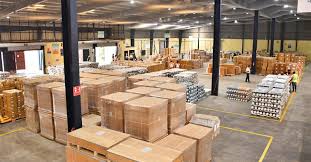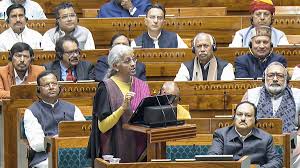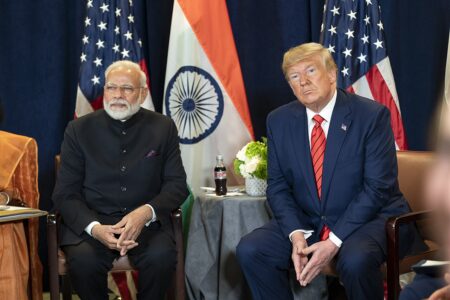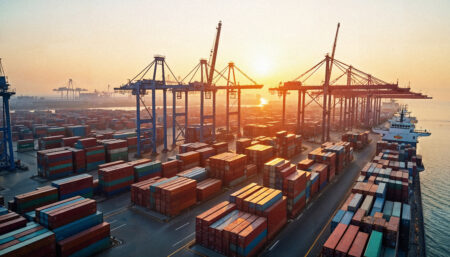
The cold chain industry is expanding rapidly on a global scale. The good news is that APAC, notably the Indian market, is leading the rise, with the cold chain market predicted to reach $340 billion by 2025. The APAC/India region comes out on top when it comes to modernising cold chain systems, receiving government backing, and increasing food and beverage exports. Rajat Gupta, TESSOL’s Founder and CEO, the mastermind behind TESSOL’s proprietary Thermal Energy Storage technology and chief innovator, shares his expert opinion on the cold chain market with the CargoInsights bureau.
Kindly elaborate on the cold chain storage and logistics sector in our country and the overall growth in recent times.
Globally, the cold chain market is on a hyper-growth path. As per various research reports, the cold chain market is expected to reach $340 billion by 2025, and the good news is that APAC, specifically the Indian market, is leading the growth. I think the key reason for the growth is the fact that everyone needs a cold chain solution – from manufacturers to distributors to wholesalers to retailers and consumers. Thanks to the Cloud Kitchens, we have delivery partners and e-commerce players added to the list. Now, you can see that the growth is being driven from various directions and not just one trend. Cold chain storage and logistics are important segments in the cold chain’s growth, and companies are making significant investments in this direction. One must also see that the APAC/India region tops the list in modernising cold chain technologies, government support, and an increase in the export of food and beverages. India is the fastest-growing country in terms of value. A country with a strong agricultural base and a growing young population must set an example.
Also, tell us about the changes in demand for cold storage during and post-pandemic.
Truth be told, the pandemic has accelerated the demand for cold chain and old storage solutions. Here are some key reasons:
- The adoption rates of packaged food, frozen food, and beverage products have significantly gone up during the pandemic.
- The food value chain moved from open-air markets to a cold-chain model.
- The rise of cloud kitchens and e-commerce delivery partners further pushed the trend.
- increase in awareness among consumers to mitigate food
- Preventing premature expiration, decay, and spoilage ensures food quality and safety.
- Change in consumption patterns of food for wellbeing
- Preventing premature expiration, decay, and spoilage ensures food quality and safety.
- Protection of product integrity
These are all good signs that the cold chain market is set for long-term growth in India. The good news is that the growth is not coming at the cost of the environment but is supporting the environment by making it more sustainable.
What is the technology used in the cold chain industry, and how is it further helping in the advancement of the whole segment?
The nature of technology is to evolve continuously. It is important to note that what technology is used is not as important as whether it is viable, reliable, and sustainable for the producer, consumer, nature, and everyone in between. The cold chain industry cannot grow at the cost of sustainability, and hence all the technologies are expected to improve overall sustainability.
Several technologies are used across the cold chain ecosystem – storage, packaging, monitoring, logistics, quality, and delivery. Beyond modernising the cold chain, these technologies are helping the segment in the following ways:
- Reducing energy costs and the requirement of significant investment capital
- Modern cold storage facilities, advanced vehicles, and system technologies for faster and safer delivery.
- Reduce cold chain businesses’ annual operating costs.
- Meet the regulations.
- Reduce food wastage with cold chains.
- Reduce your carbon footprint, fuel consumption, energy consumption, and GHG emissions.
- a larger market reach
- Fresh and healthy food products are delivered.
- Protecting product integrity
- Monitor food transportation and product safety.
What are the new solutions offered by your brand, unique to the sector? What future innovations can be expected in the sector?
We are in one of those industries where customer requirements are rapidly changing and so must the solutions. We try to be ahead of the evolving requirements through our R&D and a wide range of products—from passive packaging solutions to active cooling systems and cold rooms. Just to reiterate, the focus is not just on building viable solutions but on solutions that are sustainable.
Our latest one is a set of packaging solutions for the 24-hour delivery of chocolates. These solutions are 100% recyclable and avoid the use of Styrofoam. The applicability of these solutions is across the food and pharmaceutical sectors for 15-25O C transportation.
We are also working on key hybrid active-cooled systems for FnV transport along with a multilateral organisation and a farmer-producer company based out of Tamil Nadu. These systems will not only help reduce the current losses but also provide an alternative to the expensive and unsustainable diesel-based cooling systems.
We endeavour to collaborate and work with customers and partners to bring forth technology and products that can help propel a sustainable cold chain at a global level.
TESSOL is a globally recognised venture, offering next-generation cold chain storage and logistics solutions across the temperature-controlled supply chain. What is your vision for the brand?
As an organisation and as individuals, we are very passionate about sustainability and avoiding food wastage. All we do at Tessol is towards these areas and, in the process, deliver business benefits to the players in the ecosystem. Our vision is to enable the products to stay fresh and reach the maximum number of consumers with minimal wastage, carbon footprint, and operating costs. We want to achieve all of these through viable, reliable, and sustainable cold chain technologies that cater to the entire ecosystem.
Being the mastermind behind TESSOL’s proprietary Thermal Energy Storage technology and TESSOL’s chief innovator, do you still have any more goals that you are looking forward to accomplishing in the industry?
I think we just got started as an industry, and there is a lot more to achieve. What we have done so far in terms of saving food wastage, saving 1000 litres of fuel/annum, saving 2.6 MT of CO2 emissions/vehicle, and saving 60 per cent of operational costs is just the beginning. This shows the potential, and there is so much more to be accomplished. For example, globally, $940 billion is the economic loss per year due to food wastage. Food that is not consumed accounts for 8-10 per cent of global greenhouse gas emissions. Now you see the size of the problem. Cold Chain might not be able to save the entire thing, but we, along with our partners and the ecosystem members, are all set to conquer this mountain.











